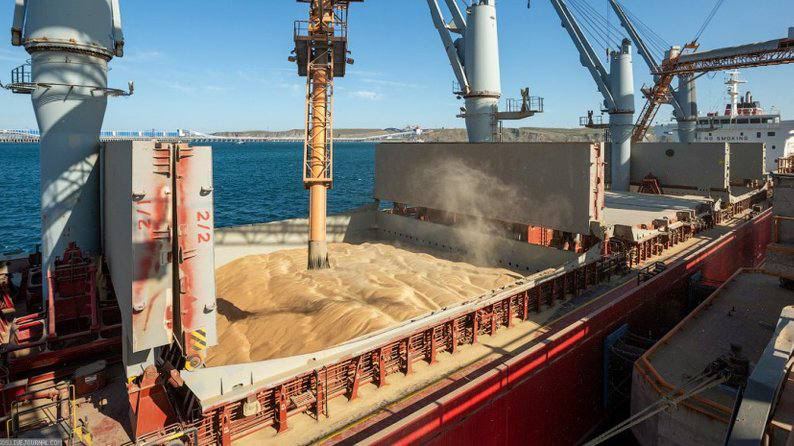No ships involved in a UN-brokered Ukraine grain export deal were transiting a Black Sea maritime humanitarian corridor on the night of October 29, when Russia says its vessels in Crimea were attacked in Sevastopol, UN aid chief Martin Griffiths told the UN Security Council on 31 October.
Stressing that the Joint Coordination Center of the initiative has been impartial all this time, Griffiths addressed Russian accusations:
"I wish to stress three points related to the alleged connection to the Initiative of the Sevastopol attacks and the damage to Russian military vessels and infrastructure.
- Firstly, to be clear, no military vessels, aircraft or assets are, or have been, involved in support of the Initiative by any party. They are not required. In fact, they are prohibited from going closer than ten nautical miles to the cargo ships, according to procedures agreed by all the parties.
- Secondly, the corridor itself is just lines on a chart: When Initiative vessels, vessels involved in the Black Sea Grain Initiative, are not in the area, the corridor has no special status. It provides neither cover nor protection for offensive or defensive military action. It’s not a shield, it’s not a hideout, it’s not a no-go zone. These things come into play when a ship passes through those lines on the sea.
- Third, coming to alleged misuse of cargo vessels in the Initiative for military purposes, none were in the corridor on the night of 29 October when the reported attacks took place. No vessel reported an incident over the weekend. So we are ready to consider and inquire into any evidence that is reported to us in the JCC.
All sides decided in the JCC that this Initiative should be entirely civilian in nature. Rather than escorts, as was imagined by some, or patrols, the safety of shipping is protected by the commitments of Ukraine and the Russian Federation. Both commit not to attack ships and related port facilities, under paragraph C of the agreement signed on 22 July in Istanbul."
On October 29, Russia announced that it was suspending participation in the implementation of the "grain deal" allegedly because of the "terrorist attack" in Sevastopol Bay on 29 October.
The Russian Defense Ministry said that the target of the attack in the Sevastopol Bay were the ships of the Black Sea Fleet, which were allegedly involved in ensuring the security of the grain corridor.
Better than Moskva: four things to know about Ukraine’s drone attack on Russian Fleet in Sevastopol
Twelve grain vessels left Odesa ports despite Russia’s suspension of “grain deal”


